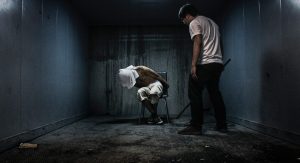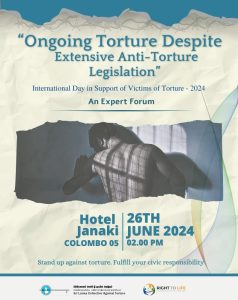History of Torture Prevention Acts Worldwide

The prevention of torture has been a significant concern for the international community, with efforts to eradicate this inhumane practice intensifying over the past century. The modern framework for torture prevention began to take shape after World War II, influenced by the horrors of wartime atrocities. The United Nations (UN) has played a pivotal role in developing and promoting international standards to prevent torture.
The Universal Declaration of Human Rights (UDHR), adopted by the UN General Assembly in 1948, was one of the earliest international documents to assert the right to freedom from torture. Article 5 of the UDHR states that “no one shall be subjected to torture or to cruel, inhuman, or degrading treatment or punishment.”
In 1984, the UN adopted the Convention Against Torture and Other Cruel, Inhuman or Degrading Treatment or Punishment (UNCAT), a landmark treaty that specifically addresses the issue of torture. UNCAT obligates signatory states to take effective measures to prevent torture within their jurisdiction and prohibits them from returning individuals to countries where they are likely to face torture.
The Optional Protocol to the Convention Against Torture (OPCAT), adopted in 2002, further strengthened the UN’s mechanisms for preventing torture. OPCAT established the Subcommittee on Prevention of Torture (SPT) and mandated the creation of National Preventive Mechanisms (NPMs) in each state party to regularly inspect places of detention.
Mechanisms of the United Nations
The UN employs several mechanisms to combat torture globally. Key among them is the UN Committee Against Torture (CAT), a body of independent experts that monitors the implementation of UNCAT by its state parties. The CAT reviews periodic reports submitted by state parties and issues concluding observations and recommendations.
The SPT, established under OPCAT, conducts visits to places of detention in state parties to assess the conditions and provide recommendations to prevent torture and ill-treatment. The SPT also advises and assists in the establishment and operation of NPMs.
The UN Special Rapporteur on Torture, an independent expert appointed by the UN Human Rights Council, investigates and reports on allegations of torture worldwide. The Special Rapporteur conducts country visits, issues urgent appeals and communications to governments, and presents annual reports to the Human Rights Council and the General Assembly.
Torture Prevention in Sri Lanka
Sri Lanka, a state party to UNCAT since 1994, has taken various legislative and institutional measures to prevent torture. The country’s legal framework includes several acts and mechanisms aimed at addressing torture and ensuring accountability.
Legal Framework and Acts in Sri Lanka
- Convention Against Torture and Other Cruel, Inhuman or Degrading Treatment or Punishment Act, No. 22 of 1994 (CAT Act): The CAT Act incorporates the provisions of UNCAT into domestic law. It defines torture, prescribes penalties for perpetrators, and outlines the responsibilities of law enforcement officers. The act makes torture a punishable offense, with penalties ranging from rigorous imprisonment to fines.
- Human Rights Commission of Sri Lanka (HRCSL): Established under the Human Rights Commission of Sri Lanka Act, No. 21 of 1996, the HRCSL is an independent body tasked with promoting and protecting human rights. The commission investigates complaints of human rights violations, including torture, and makes recommendations for redress and policy changes.
- Code of Criminal Procedure Act, No. 15 of 1979: The Code of Criminal Procedure contains provisions to safeguard the rights of detainees and suspects. It mandates judicial oversight of detention, requiring that detainees be brought before a magistrate within a specified period. The code also prohibits the use of confessions obtained through torture as evidence in court.
- Penal Code: The Penal Code of Sri Lanka criminalizes acts of physical assault, grievous hurt, and other forms of violence that may amount to torture. It provides a legal basis for prosecuting perpetrators of torture and related offenses.
- Assistance to and Protection of Victims of Crime and Witnesses Act, No. 4 of 2015: This act provides for the protection of victims and witnesses of crimes, including torture. It establishes mechanisms to ensure their safety and security and to facilitate their participation in legal proceedings without fear of retribution.
In addition to the frameworks mentioned above, the ICRC has played a pivotal role in addressing torture in Sri Lanka since the 1980s, particularly during the civil war and its aftermath. The organization conducted regular visits to detention facilities, advocating for humane treatment and providing recommendations to prevent torture and ill-treatment. The ICRC’s efforts included monitoring detainee conditions, facilitating family reunifications, and supporting the implementation of international humanitarian law. Post-conflict, the ICRC continued to address torture by promoting legal reforms, training law enforcement, and enhancing the capacity of local institutions to uphold human rights, thereby contributing significantly to the fight against torture in Sri Lanka.
Event to Commemorate International Day in Support of Victims of Torture 2024

In commemoration of the International Day in Support of Victims of Torture on June 26, 2024, the Right to Life Human Rights Centre, in collaboration with the Sri Lanka Collective Against Torture (SLCAT), will organize a significant event under the theme “Torture Prevails Despite a Plethora of Acts Against Torture.” The event aims to raise awareness about the ongoing challenges in eradicating torture and to honor the victims who continue to suffer despite existing legal protections.
The event will feature an expert forum with prominent speakers, including Former Senior SSP and Director of the Criminal Investigation Department, Senior Lecturer Chulani Herath, and esteemed legal professional Lakshan Dias AAL. These experts will provide insights into the current state of torture prevention efforts in Sri Lanka, the effectiveness of existing laws, and the steps needed to ensure genuine implementation and accountability.
The forum will include a panel discussion on the gaps and obstacles in the enforcement of anti-torture laws, drawing on real-life cases and experiences. It will also explore strategies for strengthening legal and institutional frameworks, enhancing the capacity of law enforcement and judicial bodies, and fostering a culture of respect for human rights.
Despite the comprehensive legal framework and international commitments, torture remains a persistent issue in Sri Lanka and around the world. Events like the one organized by the Right to Life Human Rights Centre and SLCAT are crucial in highlighting these challenges and advocating for stronger measures to prevent torture and support its victims. By bringing together experts, activists, and the community, such initiatives aim to reinforce the global and national resolve to eliminate torture and uphold human dignity.
Samudu Basnayake
